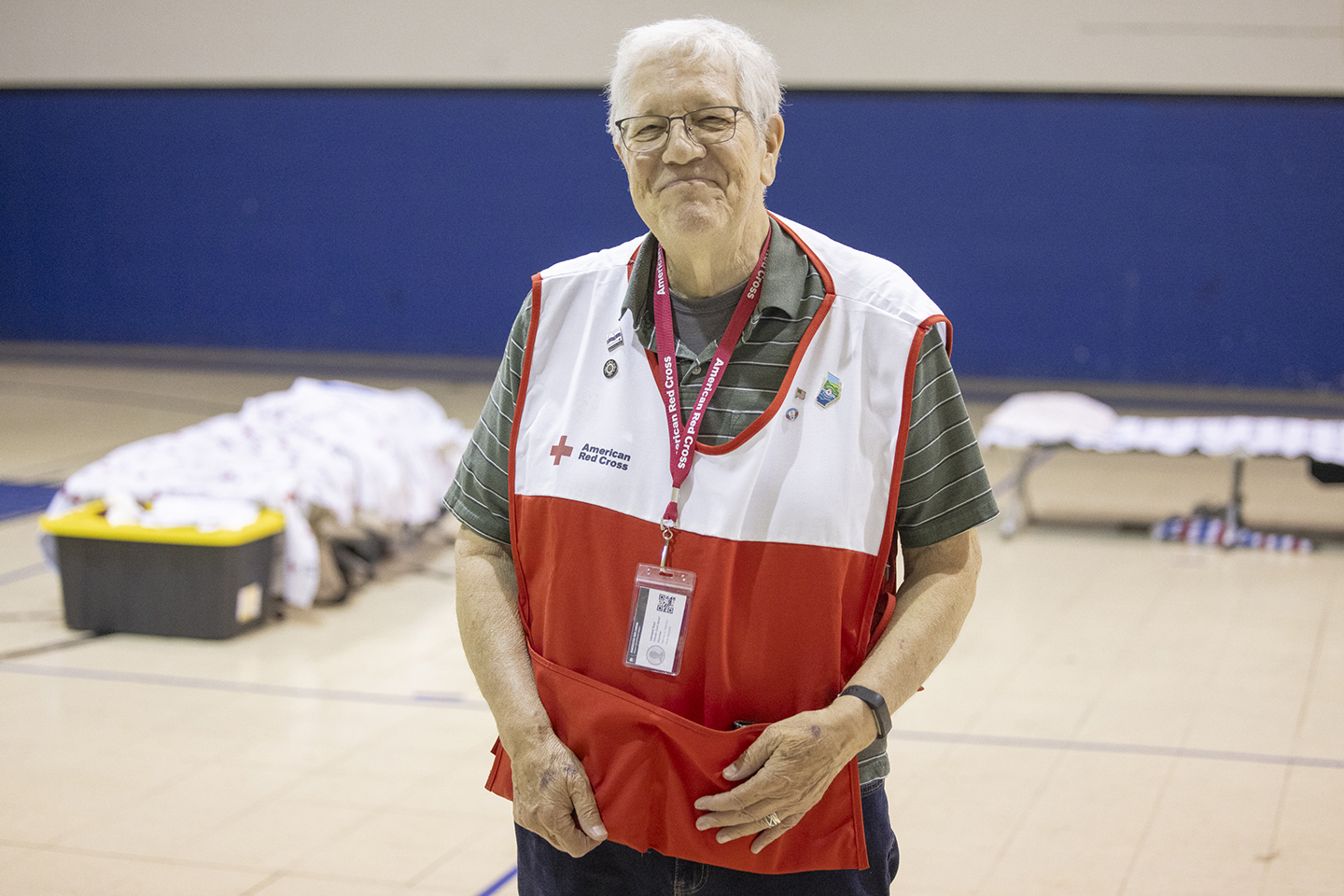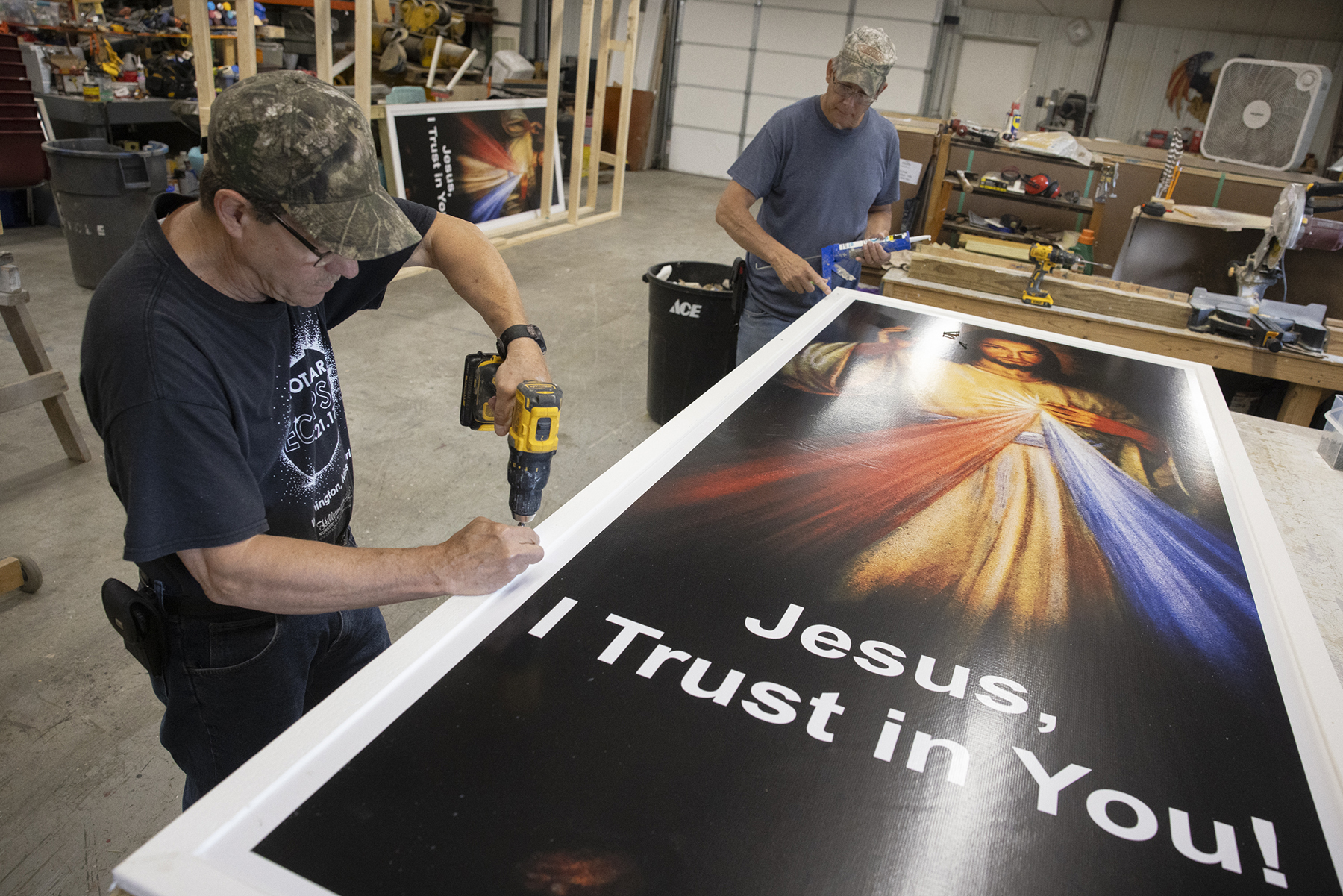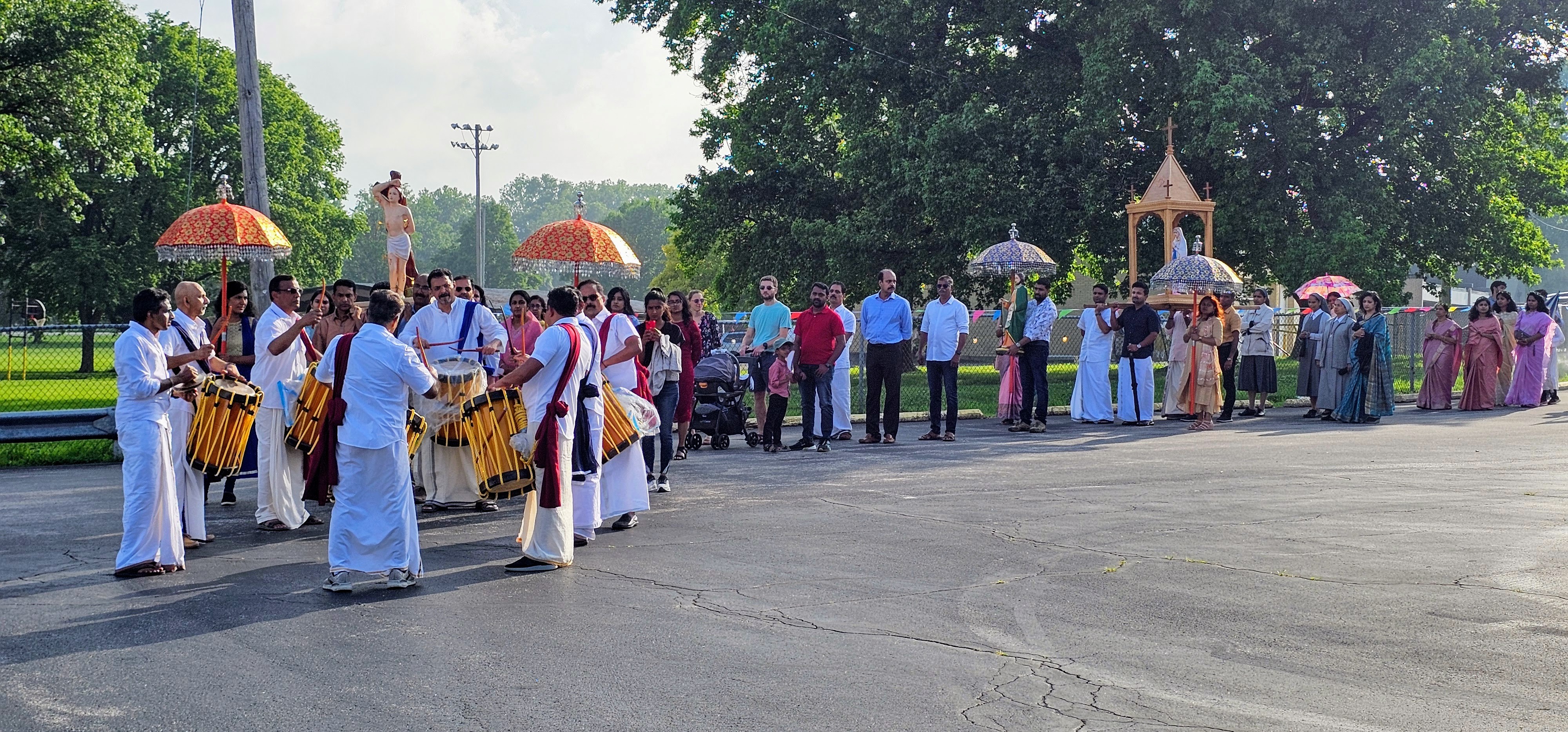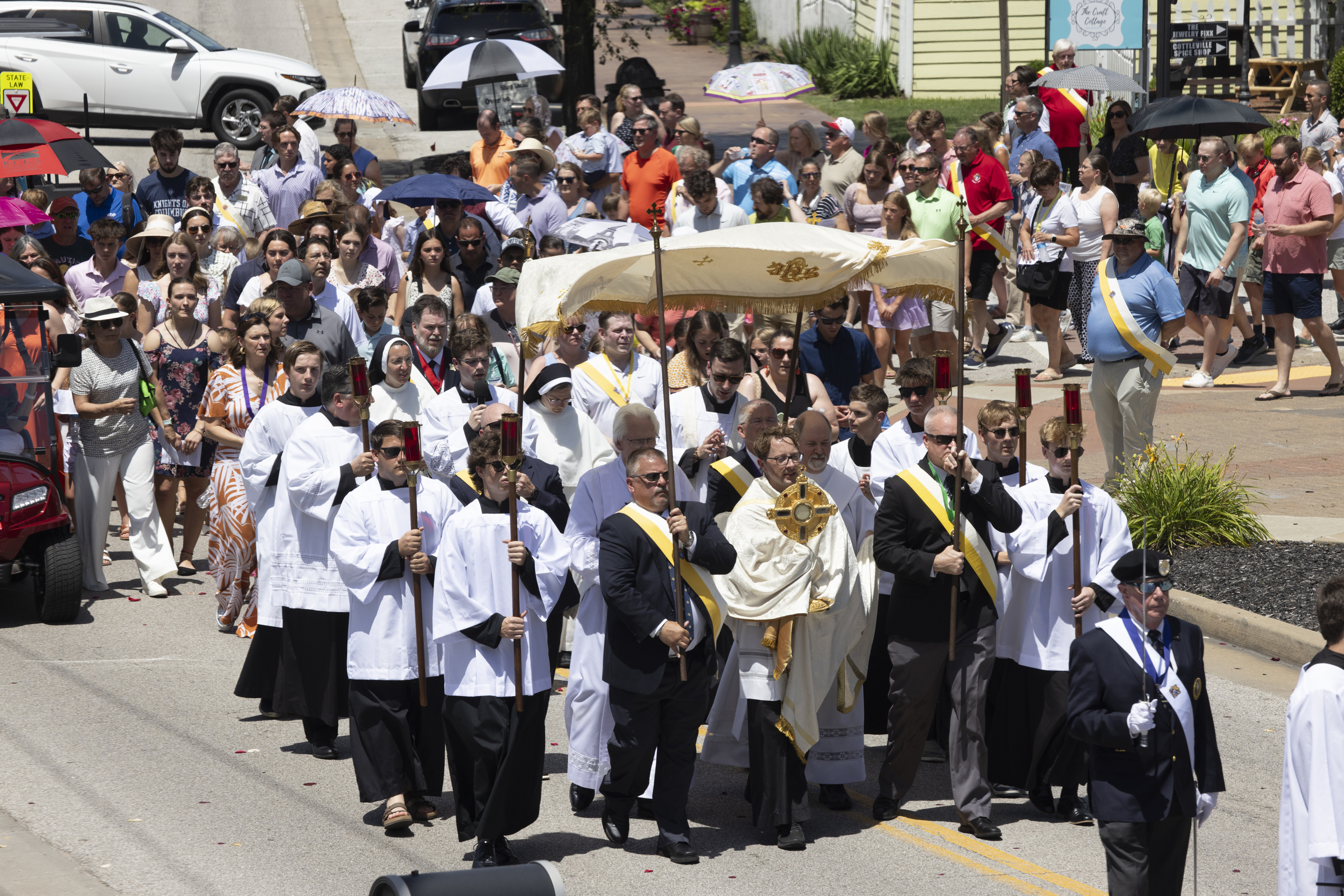Catholics, Lutherans ‘pray together as one’
Catholics and members of the Evangelical Lutheran Church in America gathered at the Cathedral Basilica of St. Louis Oct. 29 to ask the Holy Spirit to “illumine our hearts and heal our memories” while establishing a common witness and service in the world.
The evening ecumenical prayer service, part of a Lutheran-Catholic Joint Commemoration of the 500th anniversary of the Reformation and attended by almost 600 people, also sought repentance for “the dividing walls that we, and our forebears, have built,” Rev. Donald J. McCoid said. He is a former assistant to the Evangelical Lutheran Church in America presiding bishop and executive for ecumenical and inter-religious relations. Rev. McCoid led the prayer service with Auxiliary Bishop James Massa of the Catholic Diocese of Brooklyn, N.Y. Both were part of the national Lutheran-Catholic dialogue.
Martin Luther posted his “95 Theses” on Oct. 31, 1517. It marked the beginning of what is known as the Protestant Reformation. While the Reformation fractured Western Christianity, following Vatican II Catholics and Lutherans have been committed to dialogue in an effort to restore full unity.
Msgr. Dennis Stehly, vicar general of the archdiocese, welcomed the guests to the cathedral basilica. “We are here because of our common belief in God” and to “pray together as one,” he said, asking for the strength to be one with God in heaven.
In the program for the prayer service, the Rev. Mike Malone, Lutheran Central State Synod ecumenical officer, and his colleague from the Archdiocese of St. Louis, Javier Orozco, invited people to “commemorate our past and look ahead toward the greater visible unity of the Body of Christ.”
The prayer service included hymns, prayers, sharing the sign of peace, a Gospel reading, a joint sermon, a lighting of candles from the Paschal Candle by ecumenical families and readings from “From Conflict to Communion,” a Lutheran-Catholic document on the commemoration of the Reformation from the Lutheran World Federation and the Pontifical Council for Promoting Christian Unity.
The readings acknowledged the guilt of the past when God’s will that “all be one in the truth of the Gospel” wasn’t followed and when Lutherans and Catholics did evil things to each other. The readings also portrayed Christ as breaking down the walls that divide and giving ever-new beginnings as Catholics and Lutherans commit to grow in communion and witness together God’s mercy. Five commitments — prayers to work together as Lutherans and Catholics move toward a communion of all peoples — were read during the candle-lighting.
The official Catholic-Lutheran dialogue will begin a deeper exploration of common beliefs and differences on “church, Eucharist and ministry,” the Vatican and the Lutheran World Federation announced Oct. 31. The mistakes of the past cannot be changed, according to the statement, but “its influence upon us today can be transformed to become a stimulus for growing communion, and a sign of hope for the world to overcome division and fragmentation.”
After the prayer service, Lloyd Campbell of Holy Cross Lutheran Church in Creve Coeur, attending with his Catholic friend, said he liked the message that Lutherans and Catholics realize they have more similarities than differences. “We’re all in this together,” he said.
Dawn Engle of Good Shepherd Lutheran Church in Manchester cited the steps toward unity. “It’s an amazing thing to be part of a gathering of two groups with such animosity through the years,” she said.
Michael McFarlane, a St. Margaret of Scotland parishioner whose wife attends Gethsemane Lutheran Church, said he saw the prayer service as a time to reflect on points of commonality and “how we can come together despite our differences and focus on our unity with Jesus Christ as savior.” It made him think that perhaps the community can come together.
A group of parishioners from Immaculate Conception in Arnold saw the prayer service as a follow-up to their dialogue with St. Thomas Holy Spirit Lutheran Church. Karen Weber, from Immaculate Conception, appreciated hearing about the last 50 years of dialogue and how the churches have examined their differences.
It’s enabled people to come together, which is a good thing, she pointed out. “We tend to stress the negative and not the positive things that unite us,” Weber said.
The commemoration continued the next day with a panel discussion at Aquinas Institute of Theology. Parish-based, lay dialogues encouraging greater unity of the churches led up to the events.
Some information for this story was provided by Catholic News Service.
>> Service together
The Lutheran Church of the Good Shepherd in Hazelwood commemorated the 500th anniversary of the Protestant Reformation by reaching out to St. Martin de Porres Catholic Church in a service project. “Together we honored our common ground, namely our oneness in being Christians who worship the same God and live in the same community,” said Rita Cromer, a St. Martin parishioner.
Seventy volunteers from the two churches cleaned up Howdershell Park Oct. 21 using rakes, paint brushes, buckets, grabbers and yard bags provided by the Hazelwood Parks and Recreation Department. Good Shepherd provided a barbecue lunch.
St. Martin de Porres reciprocated by inviting parishioners from Good Shepherd to join its Hayride and Trunk or Treat Festival. The two churches plan to build on the foundation of fellowship with faith-based experiences in the future.
>> ‘From Conflict to Communion’
“Lutheran-Catholic Common Commemoration of the Reformation in 2017”
The Lutheran-Roman Catholic Commission on Unity invites all Christians to study its report open-mindedly and critically and to walk along the path toward the full, visible unity of the Church.
In 2017, Catholics and Lutherans jointly look back on the event of the Reformation and reflect on 50 years of official worldwide ecumenical dialogue, during which time the communion they share anew has continued to grow.
This encourages Lutherans and Catholics to recognize together the common witness to the Gospel of Jesus Christ. Yet, amid this recognition, they also have reason to experience the suffering caused by the division of the Church and to look self-critically at themselves, not only throughout history, but also through today’s realities.
Read “From Conflict to Communion” and related materials at www.stlouisreview.com/j8G.
RELATED ARTICLE(S):
Catholics and members of the Evangelical Lutheran Church in America gathered at the Cathedral Basilica of St. Louis Oct. 29 to ask the Holy Spirit to “illumine our hearts and … Catholics, Lutherans ‘pray together as one’
Subscribe to Read All St. Louis Review Stories
All readers receive 5 stories to read free per month. After that, readers will need to be logged in.
If you are currently receive the St. Louis Review at your home or office, please send your name and address (and subscriber id if you know it) to subscriptions@stlouisreview.com to get your login information.
If you are not currently a subscriber to the St. Louis Review, please contact subscriptions@stlouisreview.com for information on how to subscribe.







